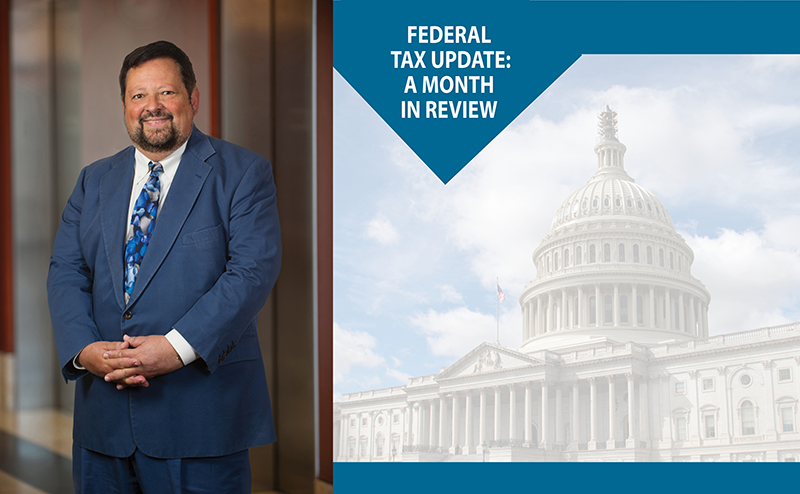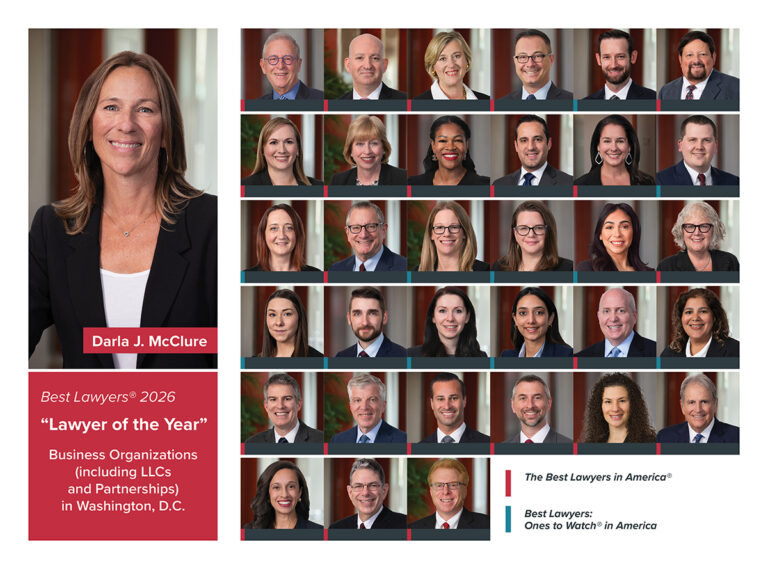January 1st, 2024
December Federal Tax Updates
Posted in: Tax Law Tagged: David S. De Jong

INDIVIDUALS
In Quevy v. Commissioner, TC Summary Opinion 2023-34, the Tax Court concluded that $75,000 paid on account of an alleged wrongful termination was includable in the employee’s income as the settlement agreement called the damages for “personal injuries” rather than “physical injuries” and the correspondence between the parties alleged discrimination and retaliation, notwithstanding the taxpayer’s anxiety and alcoholism.
In Rogerson v. Commissioner, 132 AFTR2d 2023-6624, the Ninth Circuit Court of Appeals agreed with the Tax Court that the CEO of an aircraft equipment company had nonpassive income despite his statement that the business “did not require much…time” and that rental of two yachts was passive in nature such that the losses from the latter could not offset income from the former.
RETIREMENT AND ESTATE PLANNING
In Notice 2024-2, IRS used the questions and answers format to deal with issues under 12 sections of the SECURE 2.0 Act; the guidance set a $250 limit on financial incentives to encourage workers to participate in elective deferrals but stated that the incentives constitute income to the workers.
BUSINESS
In Villa v. Commissioner, TC Memo 2023-155, the Tax Court permitted a fence builder to offset portions of unreported income with cash payments to contractors and others for business expenses which could be proven.
In Citigroup, Inc. v. United States, 132 AFTR2d 2023-6621, the US Court of Federal Claims allowed superfluous goodwill with no future benefit to be written off prior to completion of the amortization period.
In Connelly v. United States, No. 23-146, the US Supreme Court agreed to decide whether life insurance proceeds payable to a corporation on the death of a stockholder are includable in the value of the company for estate tax purposes where a buy-sell value does not control; lower courts are divided.
In Charles E. Berwind Trust v. Commissioner, TC Memo 2023-146, the Tax Court concluded for purpose of the imputed interest rules that the disposition of stock occurred at the time of closing and not three years later upon the resolution of legal claims.
In Dreyer v. United States, 132 AFTR2d 2023-________, a California Federal District Court found the chairman of a private school board to be a “responsible person” who “willfully” failed to pay over payroll taxes to IRS while other bills were paid.
In Information Release 2023-247, IRS announced a Voluntary Disclosure Program in which employers who believe that they received the Employee Retention Credit in error can repay 80 percent of the amount received up front or, if necessary, through installments; the program runs through March 22, 2024 and is not available to those under criminal investigation or employment tax examination or for those who have received a demand for repayment.
PROCEDURE
In Schoolcraft Community College District v. United States, 132 AFTR2d 2023-________, a Michigan Federal District Court ruled that the assessment of $233,000 in penalties for failure to timely file Forms W-2 was not barred by the Eighth Amendment “cruel and unusual” punishment language because it is a civil penalty and not a criminal action; the school also lost a Fifth Amendment claim where it asserted a denial of due process.
In Bachner v. Commissioner, TC Memo 2023-148, the Tax Court upheld a civil fraud penalty for creating false withholding statements in the case of an individual imprisoned for attempting to kill his wife with a neurotoxin to benefit from a $20 million insurance policy (she was found to be an innocent spouse).
In Daugherly Electric Inc. v. United States, 132 AFTR2d 2023-________, the US Court of Federal Claims concluded that a letter sent just days before expiration of the statute of limitations could not be considered a claim for refund because it lacked a federal identification number, the type of tax and the quarters in issue, all such vital information a requisite for a submission to constitute a claim for refund.
In Information Release 2023-244, IRS announced approximately $1 billion in penalty relief for about 5 million 2020 and 2021 taxpayers, automatically abating the failure to pay penalty in the case of those who received balance due notices between February 5, 2022 and December 7, 2023 or who were otherwise in the collection notice process during this period; the purpose is to provide relief for periods when IRS did not send out reminder notices due to COVID but the relief applies only to balances of less than $100,000 and the penalty will resume effective April 1, 2024 with refunds provided where eligible amounts have been made.
The IRS Communications and Liaison Office indicated that it is teaming with fortune cookie companies to put tax advice including deadlines inside the cookies.






